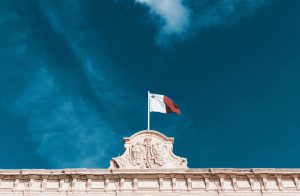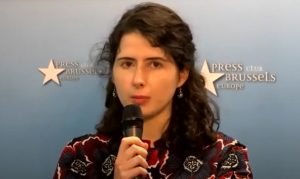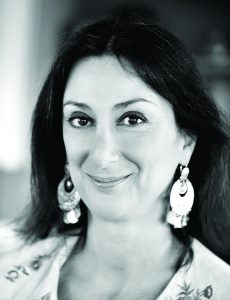Index relies entirely on the support of donors and readers to do its work.
Help us keep amplifying censored voices today.

Valetta city centre, Malta. Photo: Koby/Unsplash
We, the undersigned free expression, press freedom, and journalists’ organisations, express support for The Shift News as it faces an all-out legal battle against 40 freedom of information (FOI) lawsuits brought by 40 government entities in Malta. These appeal lawsuits pose a serious threat to the country’s already worrying freedom of information and press freedom climate. We call for these cases to be immediately dropped and for the government of Malta to fully comply with its FOI obligations going forward.
In July 2021, Malta’s Data Protection Commissioner ruled in favour of 40 FOI requests filed by independent media outlet The Shift News as part of an investigation into relations between Media Today co-owner Saviour Balzan and government entities. The Shift specifically asked for a list of all contracts and payments between companies owned by Balzan and governmental bodies, in light of the public interest need for transparency in relations between independent media and government in a troubling media landscape dominated by political party ownership.
Each of the government entities lodged identical appeals against the Data Protection Commissioner’s decisions. Eventually, all 40 decisions were appealed, naming The Shift News founder and editor Caroline Muscat, who had submitted the FOI requests. The Appeals Tribunal has so far issued 12 rulings, all in favour of The Shift and the Data Protection Commissioner. These 40 governmental bodies are now pursuing a second round of appeals against these decisions, opening up another front in an already costly legal battle.
These vexatious lawsuits seem intended not to win, but to exhaust The Shift’s time and resources, and divert the outlet’s ability to pursue public interest reporting, while also sending a clear signal to others that the Maltese government will fight media attempts to obtain information under the FOI law. Our organisations condemn these legal proceedings aimed at weakening Malta’s independent press, and call for them to be immediately dropped. The Maltese government must instead comply with its FOI obligations, and take immediate steps to improve freedom of information and press freedom in the country.
The Shift has launched a crowdfunding campaign to help cover the high costs associated with fighting this legal battle, which can be supported by following this link.
Signed :
Reporters Without Borders (RSF)
ARTICLE 19 Europe
Association of European Journalists
Committee to Protect Journalists
European Centre for Press and Media Freedom (ECPMF)
European Federation of Journalists (EFJ)
IFEX
Index on Censorship
International Press Institute (IPI)
OBC Transeuropa (OBCT)
PEN International
Physical attacks on journalists have increased dramatically over the past year, according to the latest annual report from the Council of Europe Platform on media freedom in Europe.
The platform, of which Index on Censorship is a partner, reports on serious threats to the safety of journalists and media freedom in Europe in order to reinforce the Council of Europe’s response to the threats and member states’ accountability.
The new report, Defending Press Freedom in Times of Tension and Conflict, reveals that the number of cases involving the safety and physical integrity of journalists has jumped by 51% year-on-year, with 82 cases reported to the platform.
Many of the attacks on journalists have taken place during public protests.
“Violence against journalists during street protests is fed by a wave of media bashing and an avalanche of hate speech on social networks – very often prompted by political figures – which directly target journalists, questioning their independence and legitimacy and therefore making them more vulnerable to physical aggression,” the report says.
Overall, the number of alerts in all categories published by the CoE platform has sky-rocketed to 280 in 2021, up from around 200 in 2020 and more than double the level reported in 2016. Of the 280 alerts, 110 related to the harassment and intimidation of journalists.

Index’s policy and campaigns manager Jessica Ní Mhainín
Speaking at the launch of the report, Index’s policy and campaigns manager Jessica Ní Mhainín highlighted cases of impunity in CoE’s report.
“Impunity for crimes against journalists refer to failure of states to identify, prosecute and punish anyone including the assailants and masterminds involved in committing a crime against a journalist,” she said. “Cultures of impunity contribute to self-censorship by making journalists more vulnerable to pressures out of fear of reprisals or harm.”
Some 35 cases of impunity have been registered on the platform since 2015 and two new impunity cases – those of Turkish journalist Uğur Mumcu, murdered in 1993, and Turkish-Cypriot journalist Kutlu Adalı, murdered in Cyprus in 1996 – were added to the impunity category during the year.
“In 2021, we welcomed the Slovak Supreme Court’s decision to overturn the not-guilty verdicts of the suspected masterminds of the 2018 murder of journalist Ján Kuciak and his fiancée Martina Kušnírová. The case will be heard in the Specialized Criminal Court later this year,” said Ní Mhainín.
Last year also saw the publication of a 438 page-report from the public inquiry into the assassination of investigative journalist Daphne Caruana Galizia, which concluded that the state of Malta “must bear responsibility for the assassination because it created an atmosphere of impunity”.
“We once again call on the Maltese authorities and the Commission of Experts to implement the recommendations of the Public Inquiry,” said Ní Mhainín.
Russia, Turkey and Ukraine account for 60% of all the cases relating to impunity on the platform. Last October marked the 15th anniversary of Russian journalist Anna Politkovskaya’s murder.
Ní Mhainín said, “The masterminds of her murder are still at large, sending the incredibly dangerous message that killing a journalist is a low-risk crime.”
Yet impunity is not restricted to these countries.
A BBC Spotlight investigation has uncovered serious concerns over the police investigation and the failure to prosecute those behind the murder of Irish journalist Martin O’Hagan, who was killed in September 2001 for his reporting on paramilitary activities in Northern Ireland. The concerns raised in the programme, which aired on 2 March 2022, came in the wake of several Police Ombudsman reports that uncovered collusive behaviour between the police and loyalists in Northern Ireland. According to the BBC’s investigation, police did not act on important information – including individual names – that were handed over to them within 48 hours of the murder. The journalist’s family are now taking legal action against the Police Service of Northern Ireland (PSNI) and the Ministry of Defence.
“Press freedom is the canary in the coal mine – it is a key indicator of the clear and worrying degree of democratic backsliding that is taking place across Europe,” said Ní Mhainín. “That’s why we once again call on Council of Europe member states to ensure that the highest priority is given to conducting thorough and transparent investigations into all crimes against journalists and we remind member states of the 2016 Recommendation of the Committee of Ministers which requires states ‘adopt appropriate criminal law provisions to prevent impunity’”
[vc_row][vc_column][vc_single_image image=”117699″ img_size=”full” add_caption=”yes” alignment=”center”][vc_column_text]The following remarks were made by Caoilfhionn Gallagher, QC of Doughty Street Chambers, a member of the international legal team for the family of Daphne Caruana Galizia at a vigil on Friday 15 October 2021 at the Maltese High Commission to mark the fourth anniversary of Daphne’s assassination.
“We gather today in London to pay tribute to Daphne Caruana Galizia and honour her memory, and to stand in solidarity with her bereaved family in Malta. On this, the fourth anniversary of her assassination, I wish to say four things.
“First, it is now ten weeks since the independent public inquiry in Malta published its detailed 437-page report, finding that the Maltese State should shoulder responsibility for her death. The damning report concluded that a culture of impunity was created from the highest echelons of power within the Castille. Former Prime Minister Joseph Muscat was singled out and identified as enabling this culture of impunity, and his entire cabinet was found to be collectively responsible for their inaction in the lead up to the assassination.
“The State, the report held, ‘created an atmosphere of impunity, generated from the highest echelons of the administration inside Castille, the tentacles of which then spread to other institutions, such as the police and regulatory authorities, leading to a collapse in the rule of law.’ The report laid bare endemic corruption and fundamental structural failures, the very subjects of Daphne’s reporting.
“The Government created a ‘favourable climate’ for anyone seeking to eliminate Daphne to do so with the minimum of consequences, giving a green light to her being treated as a target. The State also failed to recognise the real and immediate risks to Daphne’s life, and failed to take reasonable steps to avoid those risks. And a myriad of other systemic failings were identified which failed Daphne, failed her family, failed journalists, and failed the Maltese people.
“And yet, 10 weeks on, we remain without a meaningful response to that report by the Maltese Government. The Government has not even released an English translation of the 437-page report – what translations you have heard or read have been provided by the bereaved family and their lawyers, not the State. Even this basic step, to commit to transparency and enable the international community to understand what happened and hold Malta to account, has not been taken.
“Second, it is now four years since Daphne was brutally murdered, in an assassination which sent shockwaves across Europe. Daphne was a brilliant, brave, dogged investigative journalist, who honed her craft over decades, often sitting at her kitchen table where she spent her last few hours with her son Matthew.
“She was isolated in those final months and years, facing multiple oppressive law suits, threats of financial ruin, abuse on the street and online, dehumanising and misogynistic images circulating. And yet, there has still been no unequivocal acceptance of the horrors that she faced, let alone an unequivocal apology for it, from Malta.
“Third, I ask what should Malta now do? Daphne’s assassination followed decades of abuse. It occurred within a climate of impunity and negative rhetoric directed against Daphne and other journalists in Malta. Today, her family calls upon the Government of Malta to unequivocally condemn the climate of impunity and negative rhetoric identified by the public inquiry, which dehumanised her and fuelled her murder.
“There must be root and branch political and legislative reform.
“And above all, Daphne’s family must have meaningful involvement in what comes next. The family counts on the Prime Minister to consult with them and civil society on the foundational principles for the independent committee of experts due to be appointed following the inquiry report, and on Terms of Reference to implement those principles. This consultation process is an essential first step before the proposed roles of committee members are formulated.
“Fourth, I ask what should the international community now do? It is fitting that we are standing here in central London. Many of those threatening legal letters which bombarded Daphne in the final months and years of her life came from London law firms. Whilst that climate of impunity festered in Malta, the world stood idly by. The UK and other countries across Europe ignored what was happening under their noses, and left Daphne to her fate.
“On 6 October 2017, weeks before her death, Daphne wrote on her blog, ‘in journalism, as in many areas in life, you sometimes find the back-up you need a little too late.’ Well, one week ago the Nobel Peace Prize was awarded to two investigative journalists, one of whom, Maria Ressa, I am honoured to represent. The Norwegian Nobel Committee recognised their efforts to safeguard freedom of expression, ‘a precondition for democracy and lasting peace.’
“The awarding of the Nobel Peace Prize to journalists is a welcome recognition of the bravery of journalists doing what Daphne Caruana Galizia did so brilliantly – holding the powerful and the corrupt to account. This is important back-up from the international community, albeit far too late for Daphne. In the decades leading up to her assassination, the world failed to act. They failed to act in 2017. Four years on, it is long past time for other States who clam to believe in the importance of freedom of expression – the UK, Council of Europe Member States, EU Member States, every single country which has signed up to the Media Freedom Coalition – to act. They failed Daphne then. Now, they must hold Malta to account and ensure the change Daphne’s family and Malta need and deserve comes to pass.”
The vigil for Daphne was co-sponsored by the Maltese community in London, ARTICLE 19, the Association of European Journalists, the Commonwealth Journalists Association, Index on Censorship, PEN International, Reporters Without Borders, and Transparency International-UK.
[/vc_column_text][/vc_column][/vc_row]
[vc_row][vc_column][vc_column_text]

Daphne Caruana Galizia
A change of plea to guilty in a Maltese court this week by a man accused of being one of three hitmen who murdered investigative reporter Daphne Caruana Galizia in 2017 has brought hopes that her family may be one step closer to getting both answers about her assassination and justice.
On 16 October 2017, Caruana Galizia was assassinated by the triggering of an explosive device planted under her car seat outside her home in Bidnija, Malta. Her body was found by her son Matthew who said at the time, “I looked down and there were my mother’s body parts all around me”.
Caruana Galizia had been active for over thirty years as a journalist in the country and broke many exclusive stories around corruption on her Running Commentary blog, which remains on the web today as a testament to her tireless work.
Her work exposed corruption among politicians and business people in the country and their links with criminals outside the country’s borders which made her a target.
At the time of her death, Caruana Galizia had more than 40 lawsuits pending against her, which her son Matthew said were like a “never-ending type of torture” to his mother and which her sister, Corinne Vella, told Index the family were still facing even after her murder.
Since her death, there has been a renewed focus on Slapps (strategic lawsuits against public particiption) in Europe, in which Index on Censorship is playing a key role.
On Tuesday, Vincent Muscat, also known as Il Koħħu, changed his plea to guilty as he faced Judge Edwina Grima. Muscat, who had been accused of being one of the three hitmen who had conspired to kill Caruana Galizia, had asked for a presidential pardon two years ago but is now understood to have reached a deal with prosecutors to provide information about the murder.
Malta’s Newsbook has this week published details of the pardon, which required him to reveal the full story from being contracted to the murder itself, the identities of who planned the murder and who actually carried it out.
Muscat has now been given a 15-year sentence but has already spent three years in jail and could be out in seven years with remission.
The case against the other two alleged hitmen – brothers George and Alfred Degiorgio, known as “Ic-Ciniz” or the Chinese, and “Il-Fulu”, the Bean – will continue as a separate case.
The family’s lawyer, Jason Azzopardi, made a statement to the court following Muscat’s change of plea.
“A person who has admitted his involvement in the murder of Daphne Caruana Galizia has denied her her right to life and has denied her her right to enjoy her family, including her grandchildren who were born after she was killed,” the lawyer said.
“The macabre murder of Daphne Caruana Galizia was intentional and should have been prevented. The victim has paid with her life and her family is suffering the loss of their loved one.
“I have said all this because if Daphne Caruana Galizia’s family were to respond to this admission on the basis of emotion alone, it is obvious what their response would be.
“However, in the circumstances, and given that they were informed by the Attorney General about the process in this case, the family expresses the hope that this step will begin to lead to full justice for Daphne Caruana Galizia.”
On Wednesday, the day after the plea change, two men – Robert Agius, and Jamie Vella – were arrested on suspicion of supplying the bomb and complicity in the murder of Caruana Galizia, based on information believed to have been provided by Muscat as part of his pardon.
Malta’s prime minister Robert Abela said that the charges meant that there is evidence of the “rule of law in Malta”. However, Abela would not rule out political involvement in the journalist’s murder.
Bernard Grech, leader of the opposition Maltese Nationalist party, said of the news: “Had our institutions not been hijacked by those seeking to protect themselves, Daphne Caruana Galizia would still be alive. We have gotten to this point thanks to the perseverance of those who persisted in pursuing justice no matter what.”
Reacting to Abela’s comments, Daphne’s son Andrew said, ”To move forward a country first needs to publicly acknowledge its failures. There is no shame in this. Only the promise of hope that we could one day be a better country. We’ve sacrificed too much to be robbed of this opportunity.”
[/vc_column_text][/vc_column][/vc_row][vc_row][vc_column][three_column_post title=”You may also want to read” category_id=”18781″][/vc_column][/vc_row]